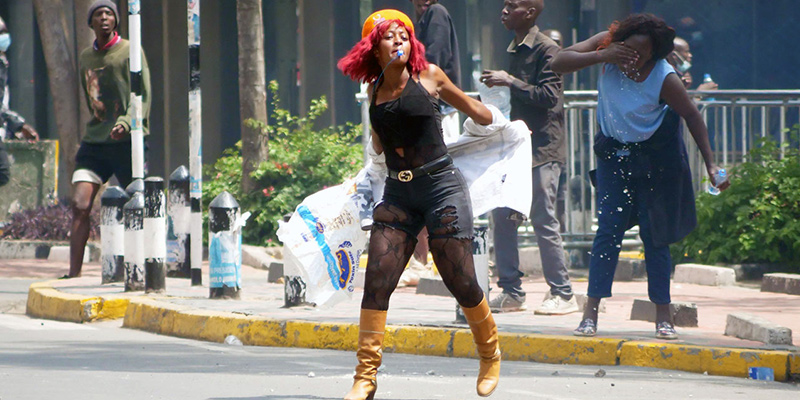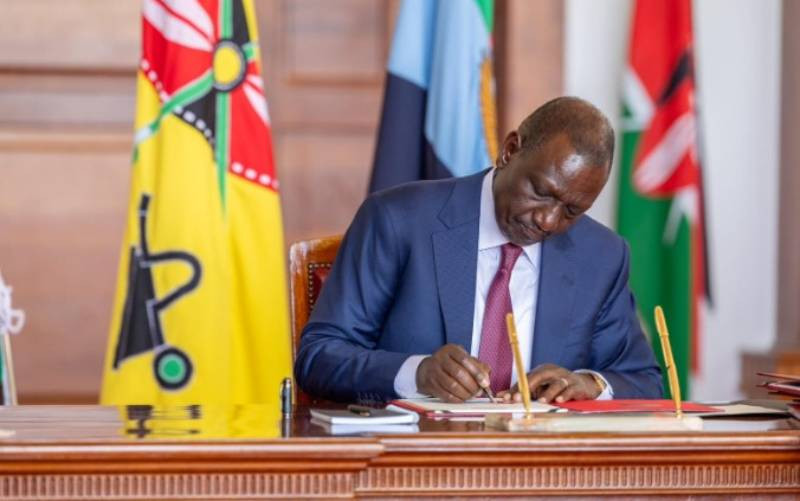Under President William Ruto's governance, Kenyan society has witnessed a disturbing shift towards what many perceive as an era of moral and ethical decline, marked by public disillusionment and growing discontent.
The Nicknames That Define an Era
The public discourse has been marked by disillusionment, with Ruto earning nicknames like "Zakayo," "Kasongo," and "Kaongo," each reflecting different facets of his public image - from tax collector to a figure of mockery or disdain.
The nickname "Zakayo," referencing the biblical tax collector Zacchaeus, has become synonymous with Ruto's tax policies, seen by many as oppressive. The term "Kasongo" emerged from a satirical song by Super Mazembe, often used to criticize Ruto's administration for perceived mismanagement and failure to deliver on promises. "Kaongo" is another derogatory nickname, illustrating the public's frustration and the satirical view of his governance.
Youth-Led Protests and Social Unrest
Several social trends and events have been fuelled or exacerbated by Ruto's policies and actions. In 2023, the youth-led protests against the Finance Bill, which introduced significant tax hikes, marked a turning point, showcasing a society increasingly willing to confront government overreach directly. These protests were not just about economics but symbolized a broader discontent with governance, leading to violent clashes and the loss of lives.
Corruption and Its Social Impact
There's been a noted rise in corruption scandals, which have permeated public discourse, with the fertilizer scam being one of the most publicized, where fake products were distributed under government programs, directly impacting farmers' livelihoods and contributing to food insecurity. This event has further entrenched cynicism towards government initiatives.
Suppression of Dissent
The government's response to dissent has often been heavy-handed, with reports of abductions, extrajudicial killings, and intimidation of critics, creating an atmosphere where fear rather than dialogue shapes public interaction. This has led to a society where free speech is curtailed, and activism is met with severe repercussions, fostering a climate of fear and self-censorship.
Social Media as a Battleground
Social media has played a significant role in shaping public opinion, with hashtags like #RutoMustGo gaining traction, reflecting widespread dissatisfaction. The use of these nicknames in memes and online discussions underscores a societal shift towards using humor and satire as forms of protest against perceived injustices.
Economic Policies and Social Divides
The economic policies have also contributed to widening social divides, with the cost of living soaring, making basic necessities out of reach for many, thereby fueling social unrest and crime as survival tactics for the disenfranchised. The lack of job opportunities, particularly for the youth, has led to increased substance abuse and crime rates, painting a grim picture of societal health under Ruto's leadership.
In conclusion, Kenyan society under William Ruto's governance has seen a marked increase in public cynicism, protest, and a questioning of moral values. The nicknames given to Ruto are not just playful jabs but are emblematic of deep-seated frustrations and a call for a return to governance that uplifts rather than burdens the populace. The trend towards a more critical, if not outright hostile, public sentiment is clear, with many yearning for a change in leadership to heal the societal rifts that have widened in recent years.

